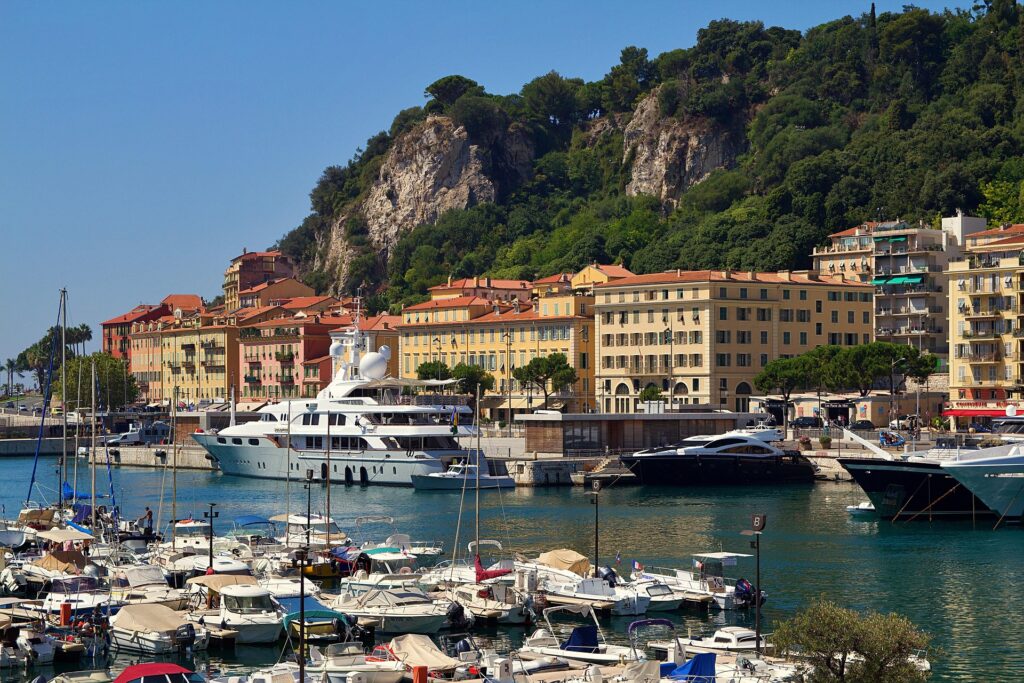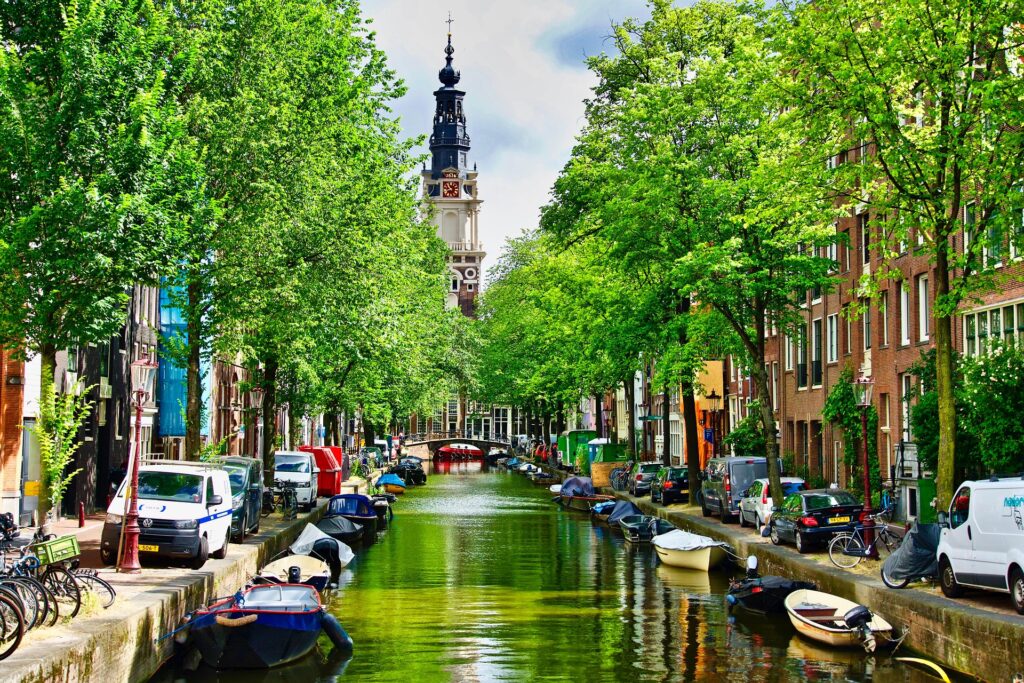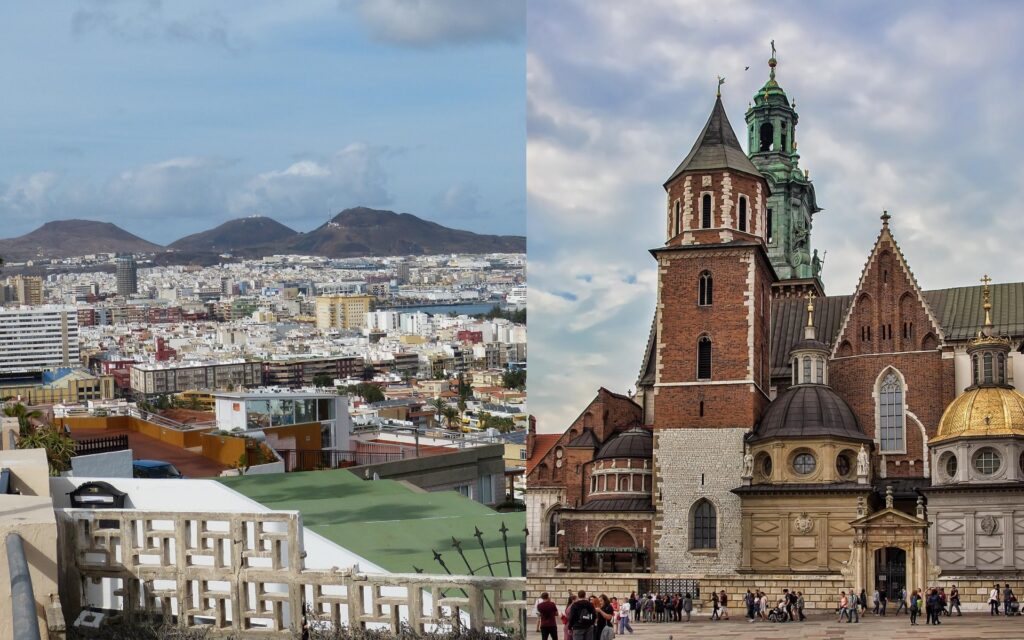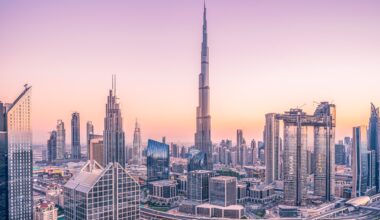Luxury is not about how a dress or a car looks. It’s about heritage, experience, and being a part of history that led you to the exact moment of purchase. It’s about being in the “club”.
Some cities are the quintessence of a luxurious lifestyle, offering the best access to boutiques, hotels, high-end restaurants, and leisure. Some of the cities become dense in luxurious experiences because of the aristocratic and bohemian past, some because of the rapid economic development. Yet all of them share a common feature nowadays: they are modern, convenient, and offer a variety of activities to satisfy every taste and need.
Not a long time ago, flying by plane was considered a luxury, and now it’s a part of everyday life – you can fly to another country paying less than for a meal at a restaurant. Luxury has become more affordable and accessible, and hotels or Michelin restaurants are not an exception; some cities have hundreds of them. Each year, new restaurants receive their first star, and even more are added to the guide, all while hotels are competing with Airbnb, offering more and more for the same price.
At PrivateUpgrades, we are committed to connecting travelers with luxury hotels with ease and confidence, while providing comfort and services when traveling. As a European hospitality company, we set our goal to provide a data-backed answer to the question: “Which European city is the poshest?”
Key takeaways
- Geneva, Switzerland, is considered the poshest European city for traveling, with a Posh Index of 98.3.
- The Top 10 most luxurious destinations are from Western and Southern Europe.
- Florence, Italy, demonstrates the highest index of 5-star hotels with 27.37 hotels per 100 km².
- London has the most 5-star hotels overall – 288.
- Paris alone has more Michelin Guide restaurants than the whole of Eastern and Central Europe – 521
- The most Michelin Guide-dense city is Nice, with 78.60 restaurants per 100 km².
- The availability of luxurious traveling essentials in Europe depends on the primary focus of the economic development and the historical heritage of the city.
- Geneva has the highest concentration of golf courses in Europe per 100k residents.
- 5 out of the 10 least luxurious European cities are from Eastern Europe.
- Western Europe dominates in the availability of Michelin restaurants, averaging 52 per city.
How We Ranked The Cities?
Our study analyzed nearly one hundred European cities, examining the concentration of five-star hotels, Michelin Guide restaurants, and golf courses per capita. The final index is calculated from equally weighted relative metrics that represent hotel, Michelin restaurant, and golf course density. These metrics directly correspond with the number of luxurious boutiques, high-end leisure activities, and overall “poshness” of a city.
5-Star Hotel Concentration
One of the most important factors that indicates a city is attractive to wealthy tourists is the number and density of the luxurious hotels, villas, and other high-end accommodations. It may be hard to count the exact number of villas, but since stars are a universal metric for grading a hotel, it was chosen as the accommodation metric. On average, a big European city has 17 hotels per city, and London tops this list with 288 5-star hotels.
Michelin Guide restaurant density
The second metric, which represents the amount of high-end cuisine a city can offer, is the Michelin Guide restaurant density. The Michelin Guide was famously created to encourage people to drive more and provide them with maps and guides on where to eat the best. Now, it has become a part of the food culture, and the guide has both expensive and affordable options, but still, they share a common feature: the food in the mentioned restaurants is excellent. Paris has the most overall – 521.
Premium Golf Course availability
Golf course availability represents the high-end entertainment options. The game of golf is one of the classiest sports ever, and the availability of such leisure highly correlates with the overall economic status of the city. London and Dublin have the most overall, 133 and 65.
How Concentrated Luxury Defines Europe’s Poshest Cities
What is the first thing that comes to mind when one thinks about luxury experiences? Is it unmatched comfort or a sense that any whim for exclusivity can become true if the right amount is on the credit card? Perhaps it’s a mix of both, and the cities with a high concentration of wealth attract moneyed tourists from all over the globe. The local infrastructure represents it. It can be attributed to the historical wealth-building or continuous investment into prime experiences, but it is also a feature of an uninterrupted processing of culture to suit the opulent few.
Some cities, like Paris, Vienna, or Rome, are known for their bohemia, and the data backs it – Paris has, statistically, a Michelin Guide restaurant for each 4 km² of its area, while Vienna has a 5-star hotel for each 10 km². However, the data also shows that smaller cities, like Nice or Geneva, have a much higher concentration of both hotels and restaurants.
At the same time, some cities, especially in Eastern Europe, have not received, either historically or in recent times, the attention of wealthy tourists. Yet these cities offer something that some posh cities lack, like the charm of bygone times, infused with culture, customs, and heartwarming hospitality.
Top 10 Poshest European Cities
| Place | City | Country | Poshness Index | Michelin per 100 km² (City) | 5-star per 100 km² (City) | Courses per 100k residents |
|---|---|---|---|---|---|---|
| 1 | Geneva | Switzerland | 98.3 | 57.04 | 18.20 | 7.36 |
| 2 | Nice | France | 93.1 | 78.60 | 20.17 | 3.11 |
| 3 | Amsterdam | Netherlands | 84.6 | 34.94 | 9.89 | 2.52 |
| 4 | Zurich | Switzerland | 83.2 | 36.12 | 5.46 | 3.22 |
| 5 | Florence | Italy | 82.7 | 43.98 | 27.37 | 1.38 |
| 6 | Utrecht | Netherlands | 82 | 27.98 | 3.41 | 5.84 |
| 7 | Dusseldorf | Germany | 79.4 | 24.37 | 4.60 | 4.75 |
| 8 | Porto | Portugal | 78.7 | 19.59 | 17.81 | 2.17 |
| 9 | Palma de Mallorca | Spain | 76.2 | 12.95 | 11.03 | 3.19 |
| 10 | London | United Kingdom | 74.3 | 19.86 | 16.58 | 1.49 |
#1 Geneva, Switzerland
Poshness index: 98.3

Source: https://pixabay.com/photos/geneva-switzerland-cityscape-6754350/
Geneva is also called the “private banking capital of Switzerland”. Situated in southern Switzerland, sharing a border with France, Geneva has a long and fascinating history. First populated by the Celts, then by the Romans, and much later by the Franks. It was a city of reformations and amendments, as after WWII, the EU headquarters of the UN was established exactly there. Geneva is also a host to international organizations like the Red Cross, the WHO, and the World Trade Organization. It is a rich, prosperous city that has contributed throughout history to the building of the world we know today. It has the highest number of golf courses per capita – 7.36, and has a density of 57 Michelin Guide restaurants and 18 5-star hotels per 100 km² of the city area.
#2 Nice, France

Poshness index: 93.1
Source: https://pixabay.com/photos/nice-france-south-france-building-4546497/
Nice embodies the definition of opulence and poshness, and it stretches through history. In the 17th century, Nice became a trading hub, and by the 19th century, it started to attract aristocrats and tourists. After WW2, Nice recovered from the devastation and returned to its earned place as the hotspot of wealthy individuals. Nowadays, Nice can offer wealthy visitors 113 restaurants mentioned in the Michelin guide to be explored. Moreover, it also ranks first for the concentration of the aforementioned restaurants and premium golf courses in Europe.
#3 Amsterdam, Netherlands
Poshness index: 84.6

Source: https://pixabay.com/photos/amsterdam-canal-boats-church-6783217/
Amsterdam doesn’t need an introduction. This city has been portrayed multiple times in films, books, and TV series. It is a city of canals, small houses, and bicycles, attracting tourists of all backgrounds to bask in the beauty of the Netherlands’ capital. Amsterdam has in store a rich history of trading, exploration, baking, and financial innovation. In 1602, the world’s first stock exchange was established precisely in the city of twisting canals, making it Europe’s financial capital. So there’s no doubt that Amsterdam still holds its firm feet as one of the poshest cities in Europe. It has a Michelin Guide restaurant for every 3 km² of the city area, as well as 30 5-star hotels in total.
City with the best balance of poshness and modesty
Poshness index: 44.2 & 44.1

Sources: https://pixabay.com/photos/canary-islands-spain-coast-213138/
https://pixabay.com/photos/wawel-krakow-poland-monument-3683040/
Las Palmas and Krakow offer the best balance in luxury travel amenities and accessibility, as both cities are suitable for wealthy visitors and those who want to make their stay an unforgettable journey without spending a fortune. Las Palmas has 13 restaurants mentioned in the Michelin guide in total, while Krakow offers 23 restaurants. These two fascinating cities, with a deep historical heritage, modern infrastructure, and a wide choice of experiences, will not leave any traveler disappointed.
How Economics and History Shape Access to Luxury in Europe
The historical development indeed influences the accessibility of luxurious essentials, which can make the stay more enjoyable and memorable. The historical contribution of such cities as, for example, Geneva, Nice, and Amsterdam has left an undeniable cultural heritage. Thus, it draws the attention of millions of travelers worldwide annually. Nowadays, there are nearly 650,000 tourist accommodations in the EU, as every visitor must find a place to stay. Many cities in Europe are functioning primarily as industrial centers, and, as a result, they cannot boast of a significant contribution to cultural heritage.
Another important aspect that may affect the accessibility to luxury in Europe is the primary focus of economic development of the region. Many cities in Europe mostly exist due to the tourism sector; for example, 11.4% of Venice’s GDP is from the tourism sector. Thus, the local industry tries to attract as many wealthy travelers as possible by expanding the choice of luxury essentials to meet the necessary needs of visitors from abroad. The Hague, for example, has the 3rd highest concentration of Michelin guide restaurants (47.86 per 100 km²), while there are 27.37 five-star hotels per 100 km² in Florence.
On the other hand, the economy of many European cities strongly depends on the industrial sector and agriculture, and is focused on boosting the economic well-being of the nation. As a result, these destinations are not meant mainly for tourism, and lack five-star hotels or prestigious restaurants. Kaunas, for example, has only 5 Michelin guide restaurants, Bratislava has 1 restaurant, while Lodz, Lublin, and Plovdiv do not have a single restaurant mentioned in the Michelin guide.
Conclusion
There are many unique cultural destinations, accommodations, and leisure options available throughout Europe, which will help create an unforgettable trip. Each European city has its own luxury travel amenities with varying degrees of availability based upon several factors, including the city’s overall economic climate, historical heritage of the region, and urban infrastructure. Therefore, the ultimate choice for the trip depends on what travelers want to get out of it. Additionally, visitors may also have the opportunity to customize their trip while visiting to meet their personal needs.
Methodology
To conduct research, the “PrivateUpgrades” team has ranked 94 EU cities based on the density of luxurious options available within the urban area of each city in km². Three main luxurious options were chosen, such as the total number of Michelin Guide restaurants, the total number of five-star hotels, and the total number of premium golf courses.
To calculate the “Michelin restaurants per 100 km²” index, the total number of Michelin restaurants was divided by the total urban area and multiplied by 100 for each city individually. The same steps were taken to calculate “Golf Courses per 100k residents” and “Five-star Hotels per 100 km²”.
The data for Michelin restaurants was gathered from the official Michelin website. The data for both five-star hotels was sourced from the Booking API and premium golf courses via the LeadingCourses by collecting golf course data. The urban area for each EU city, listed in the research, was collected from Eurostat.
For data-driven content like this, SEO insights for luxury travel sites can help increase organic visibility.






